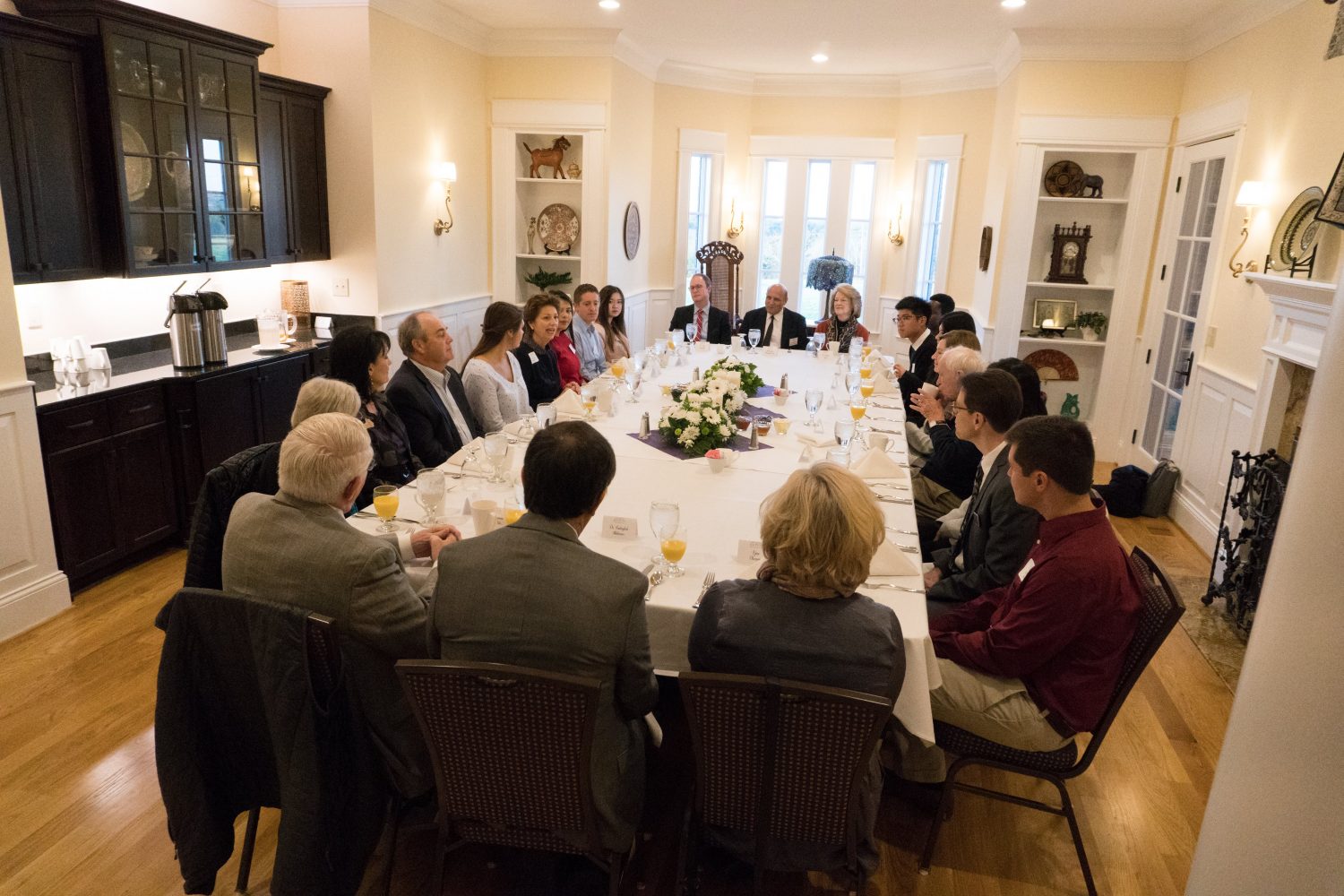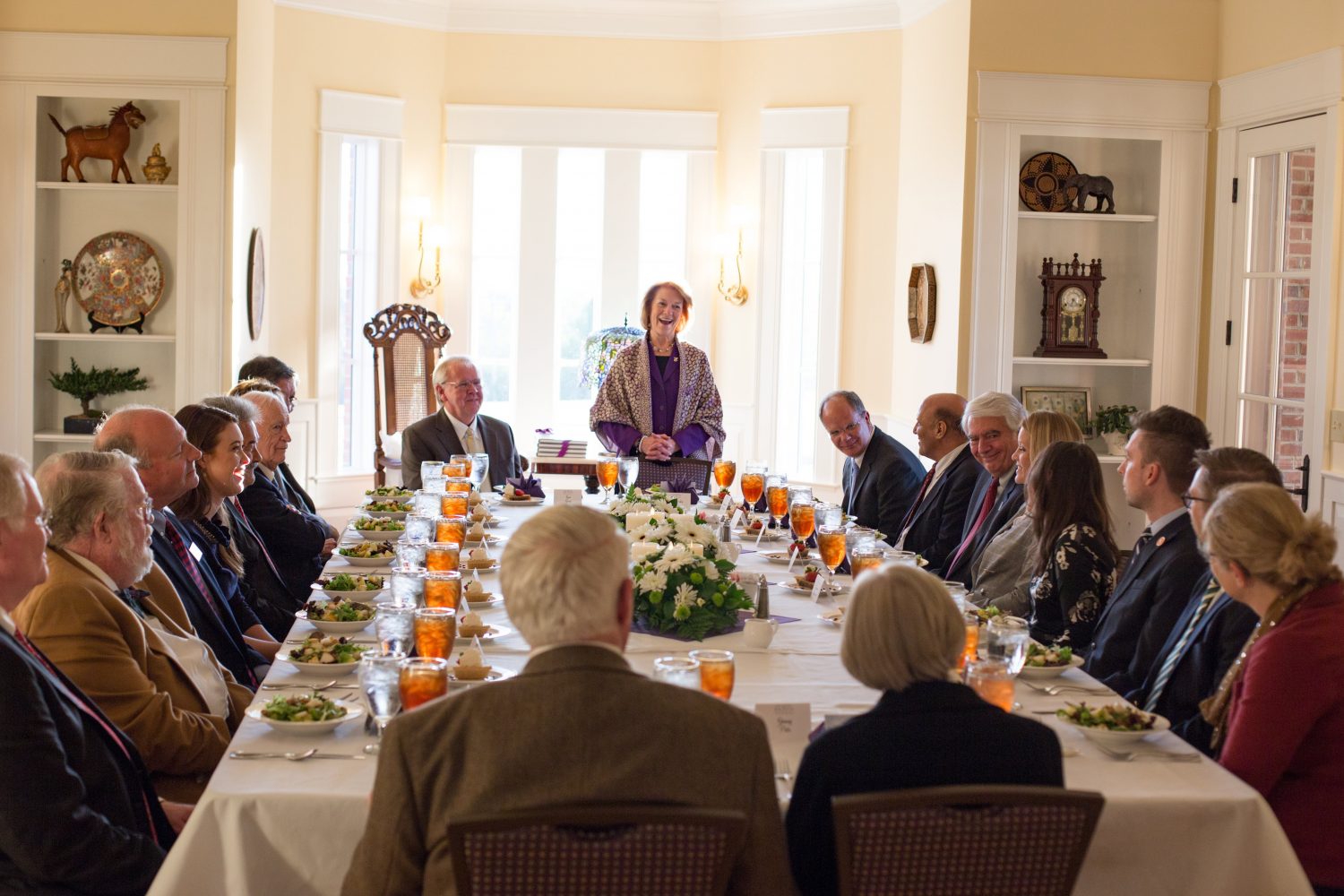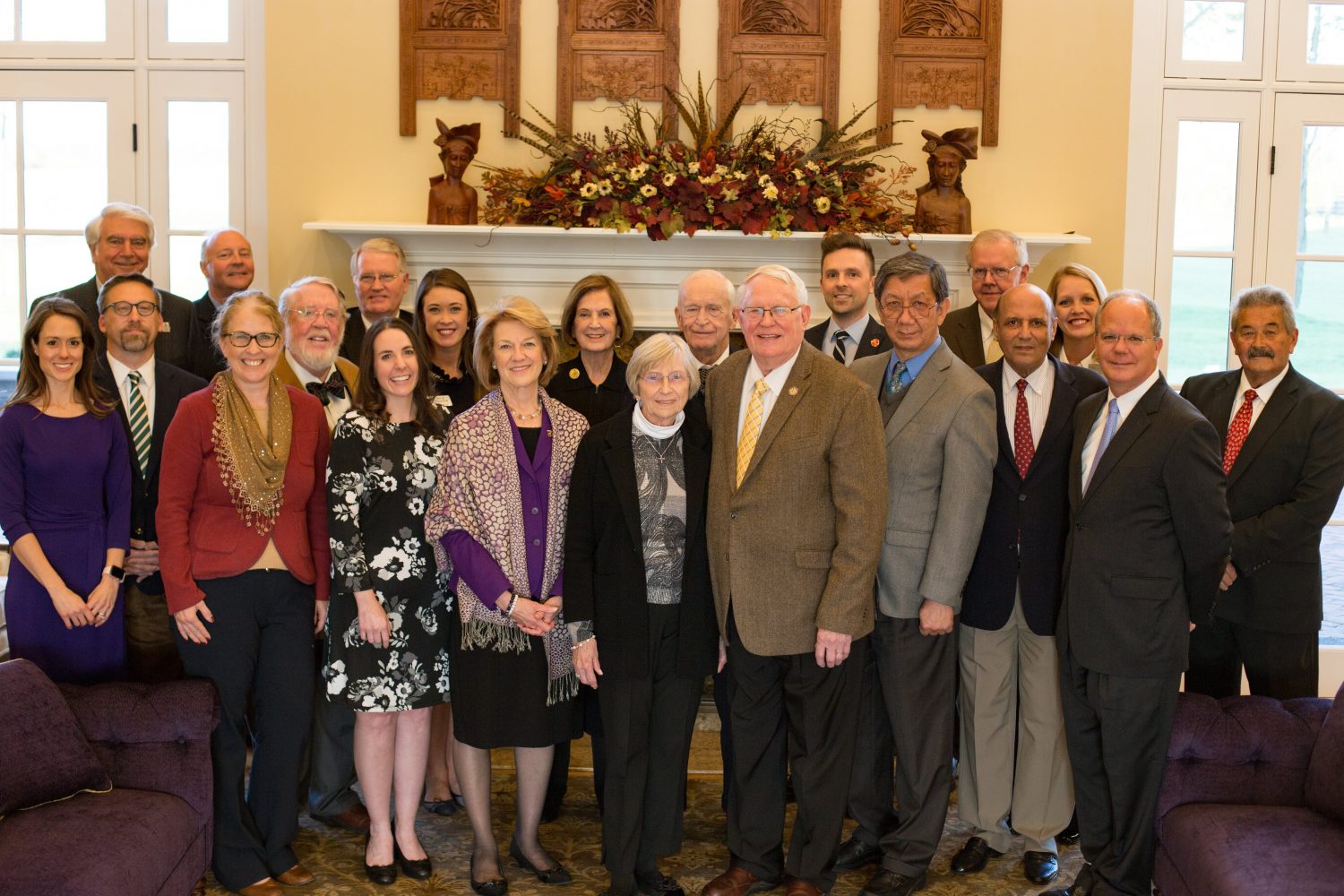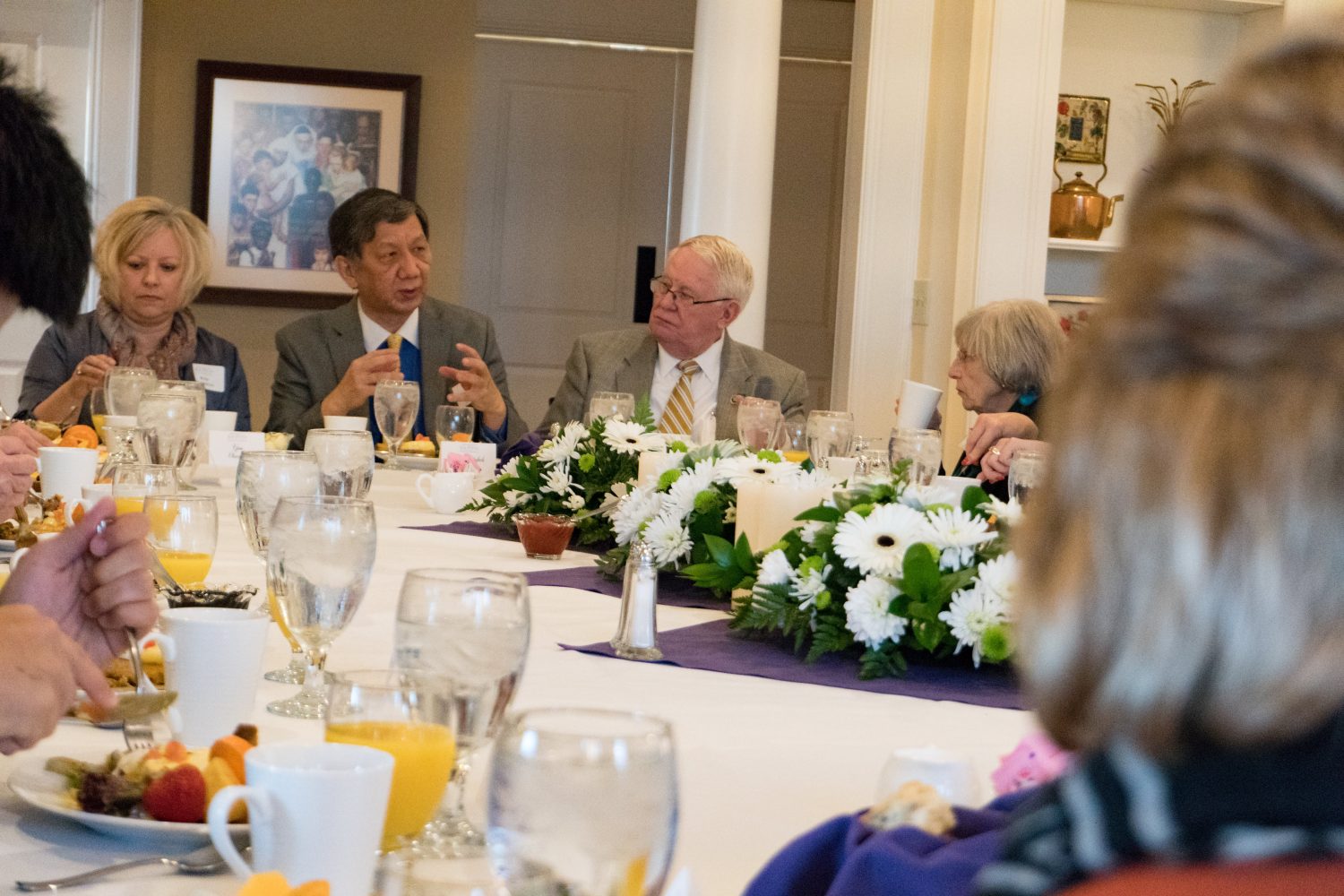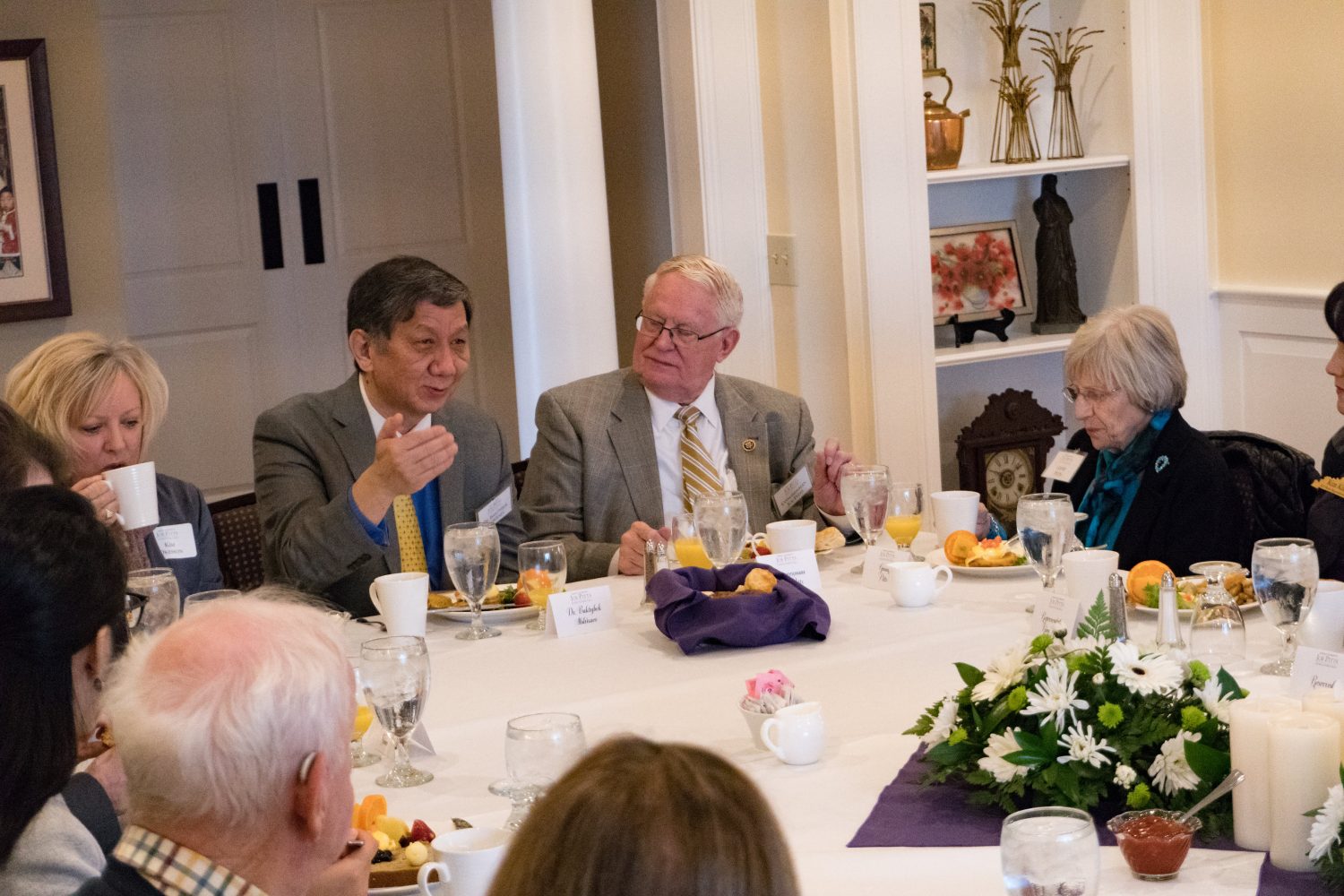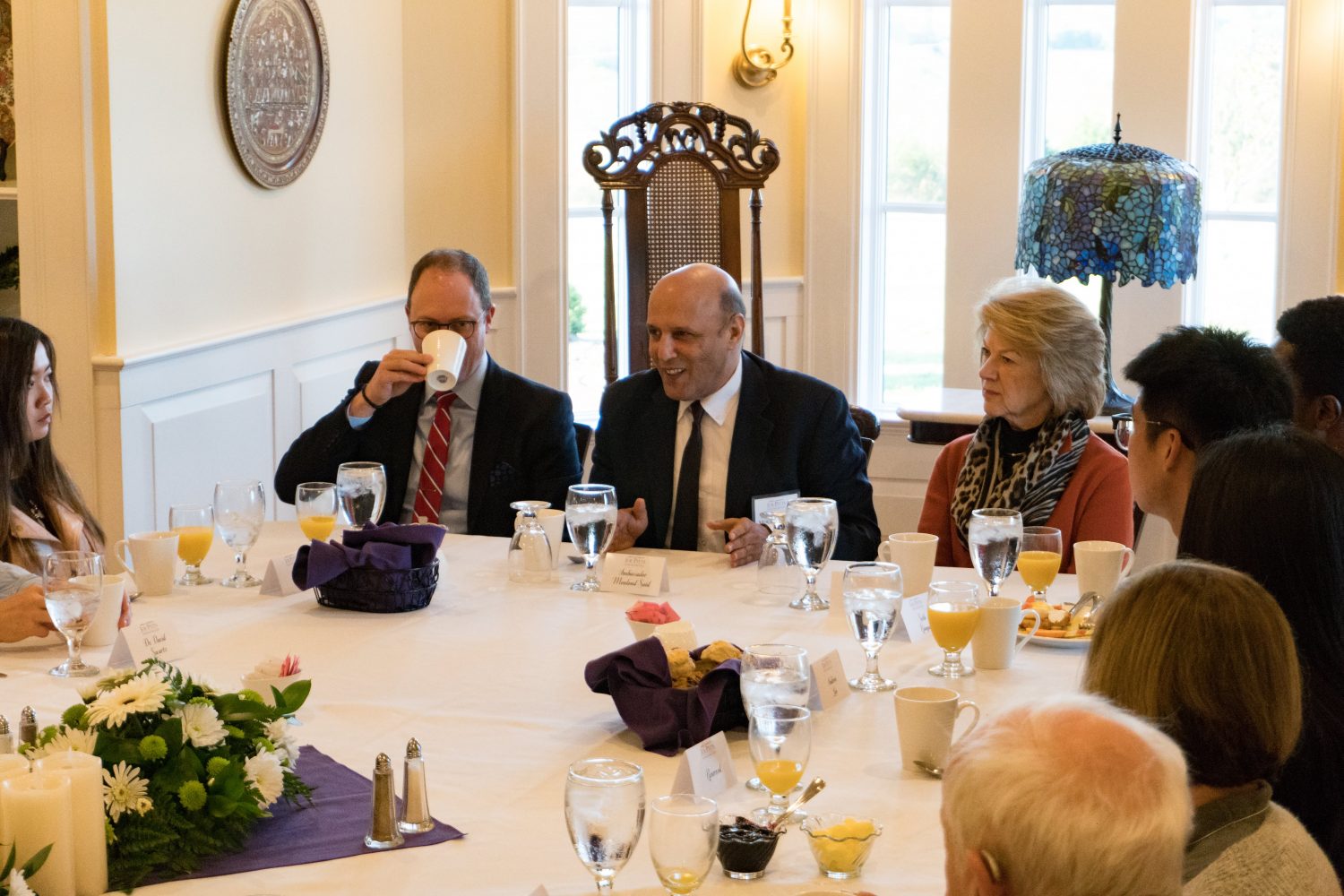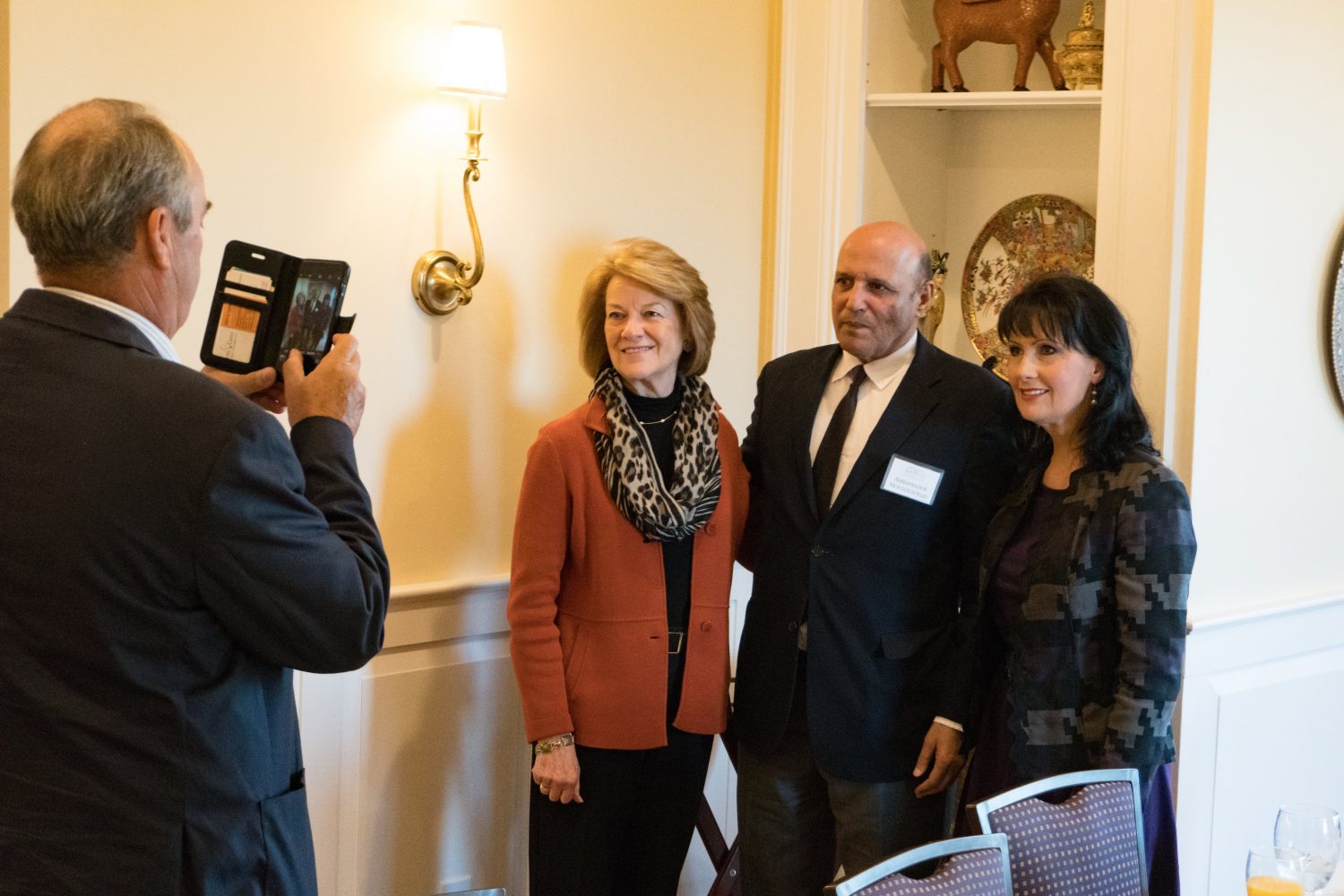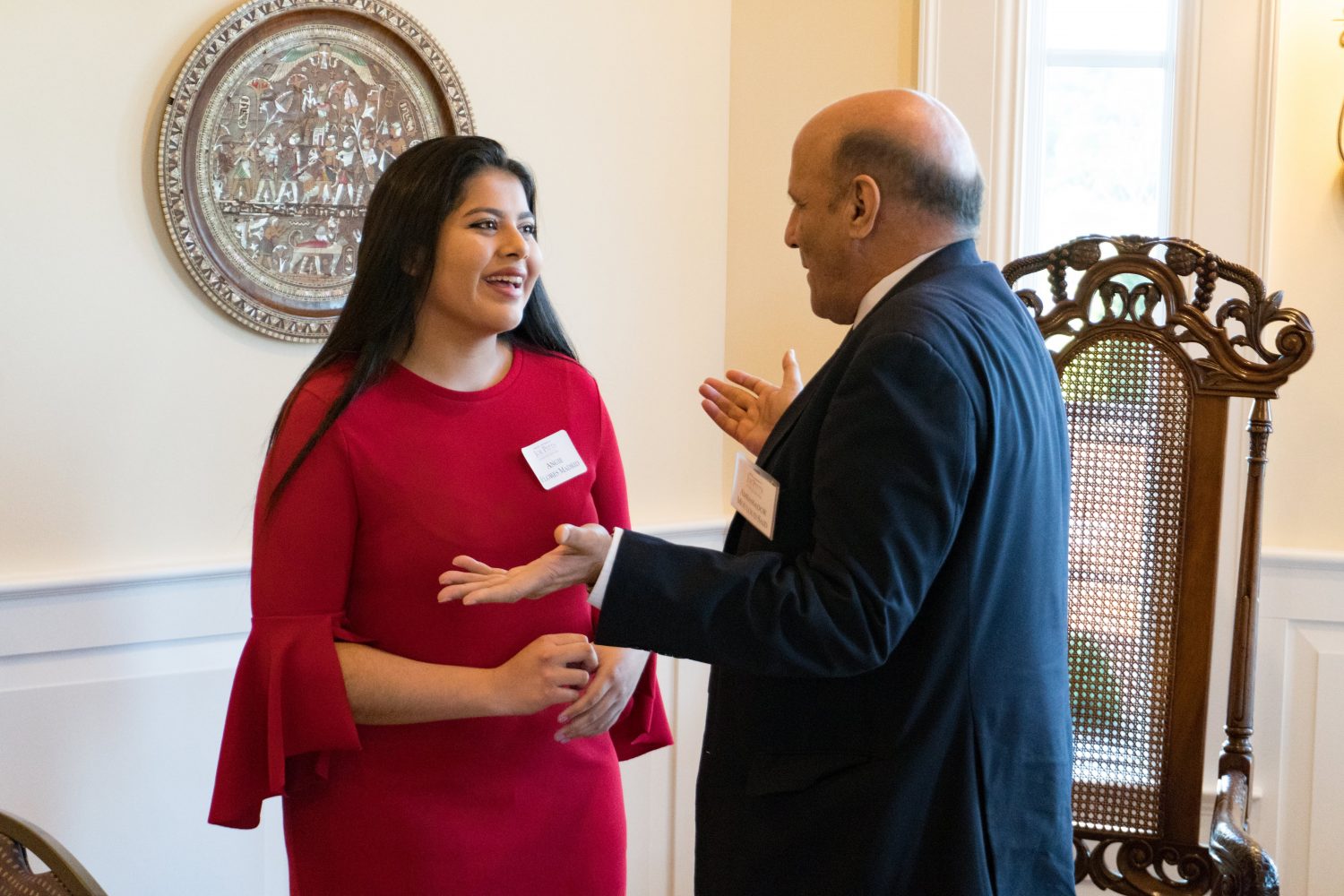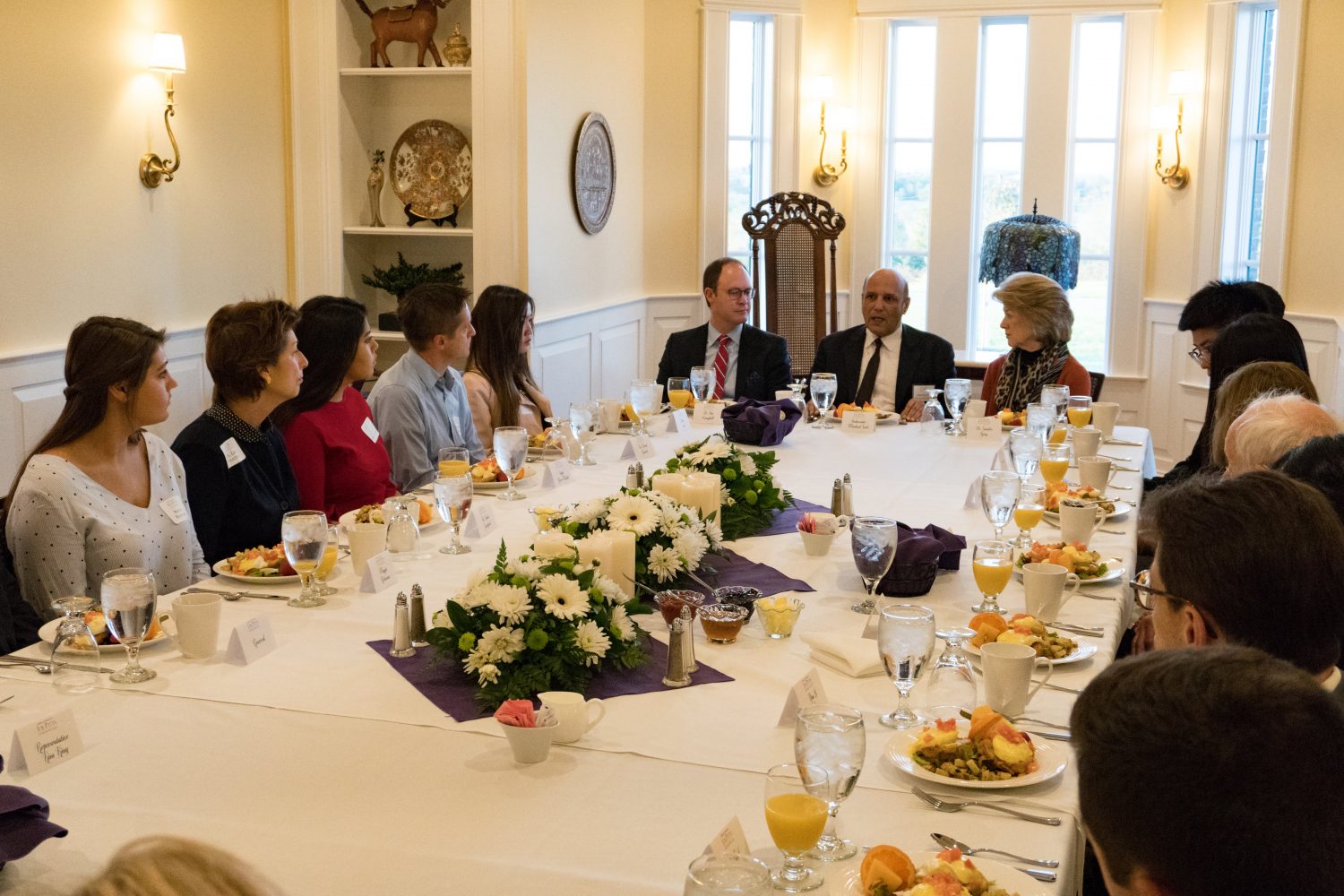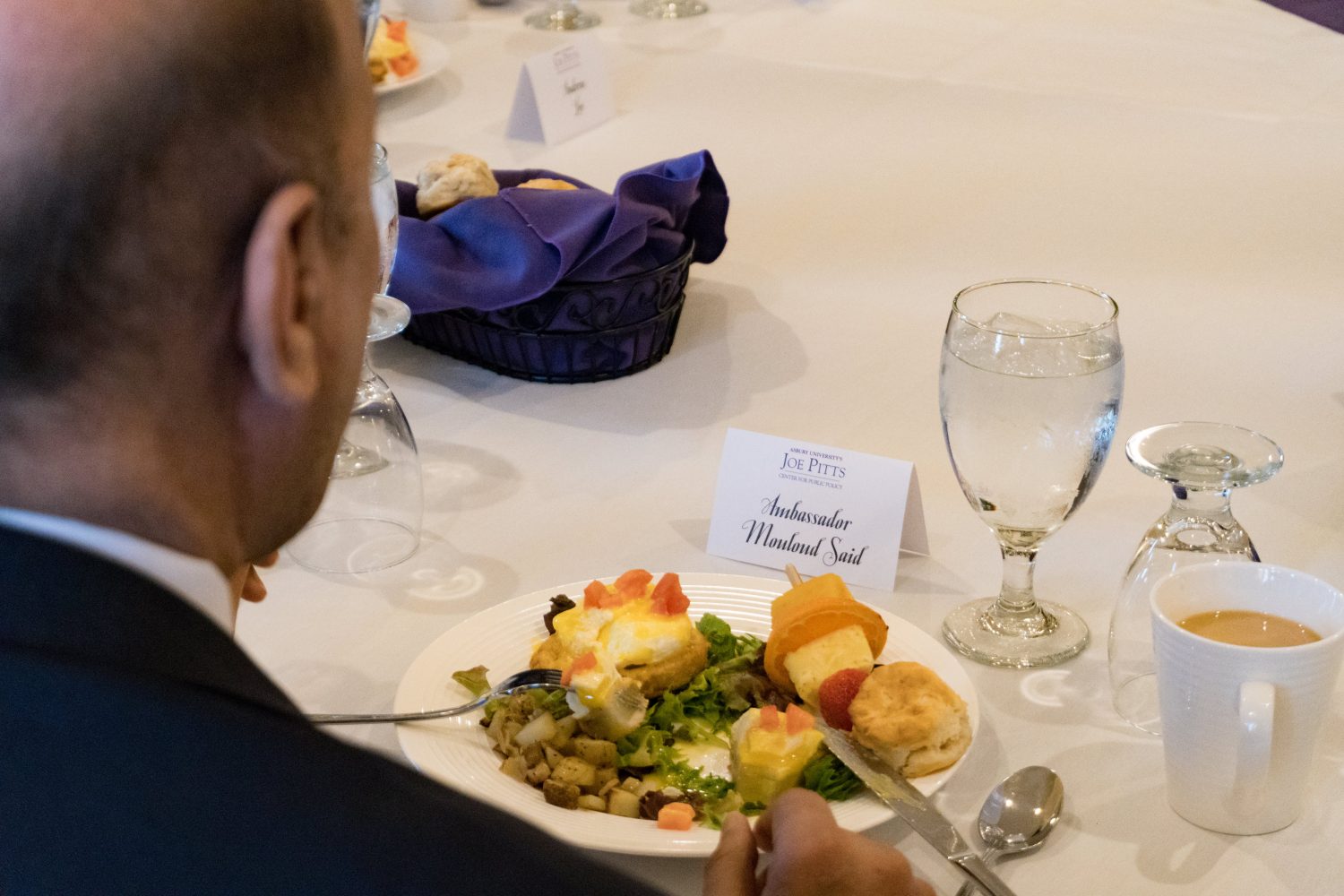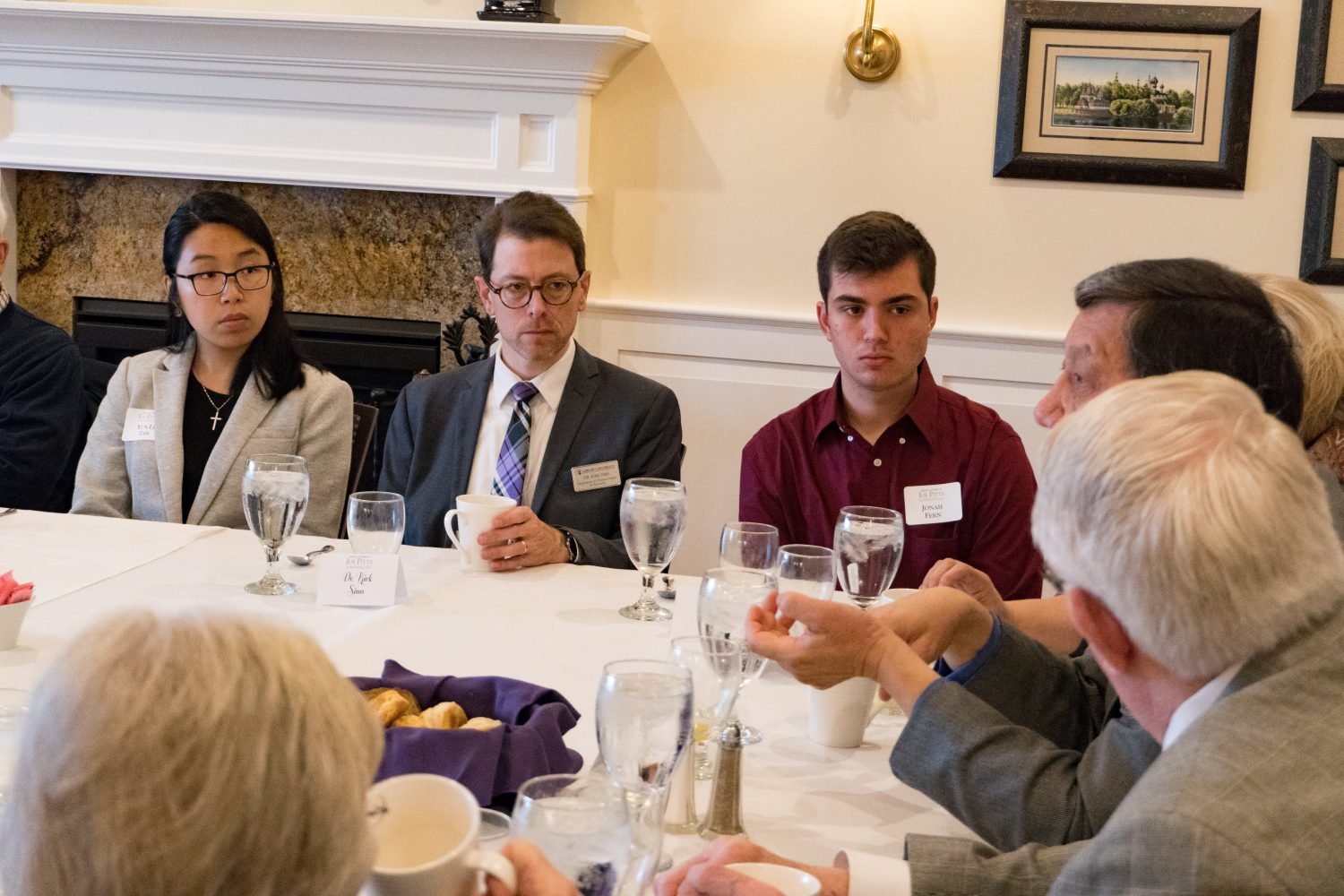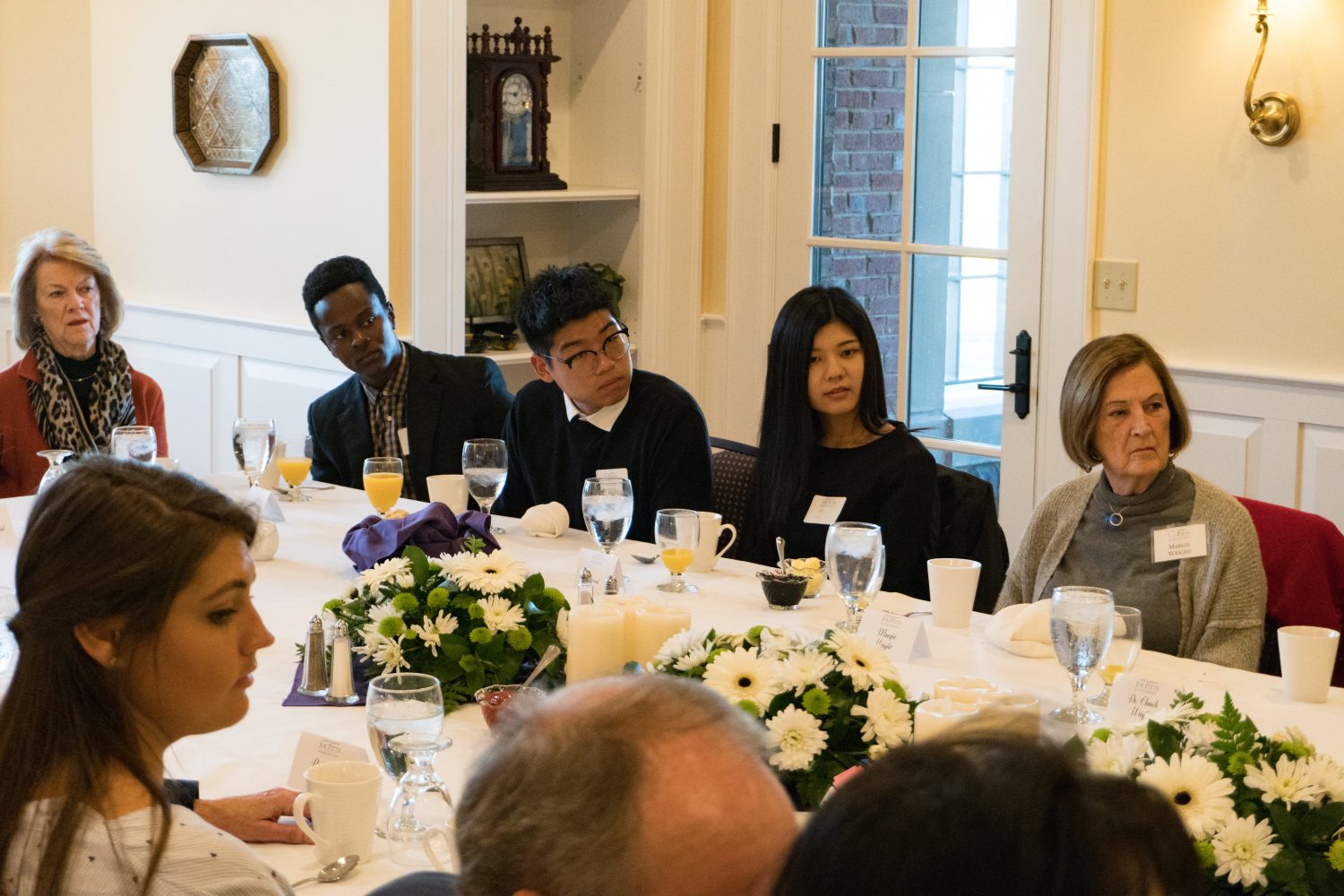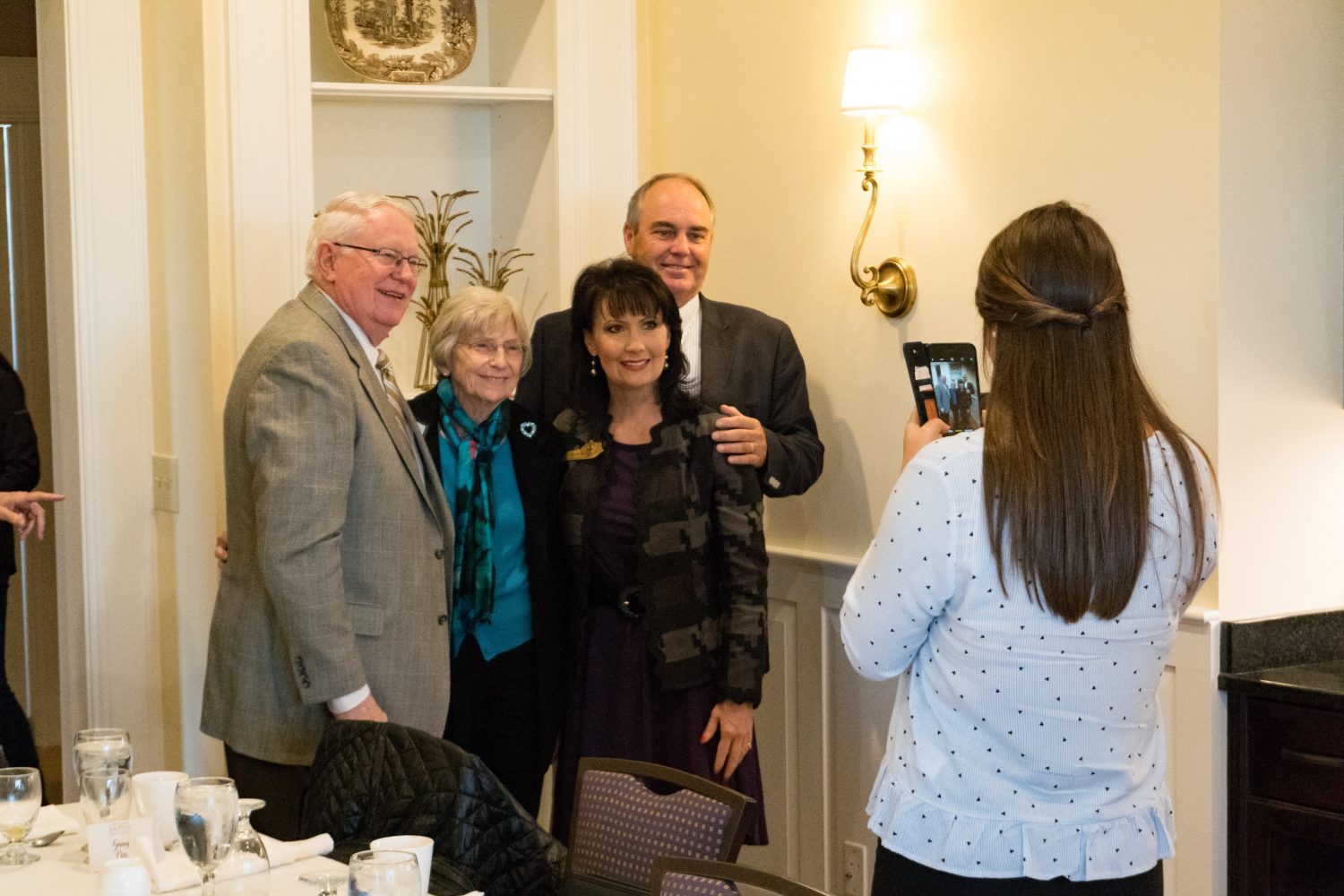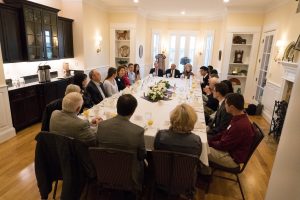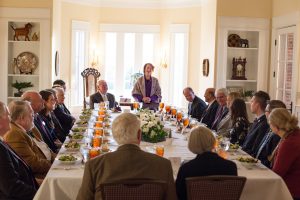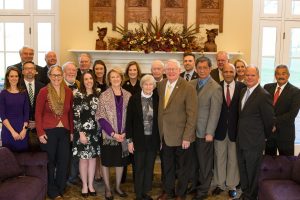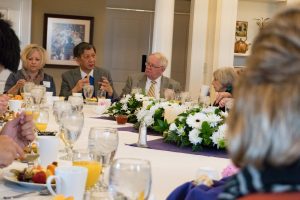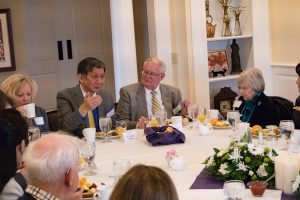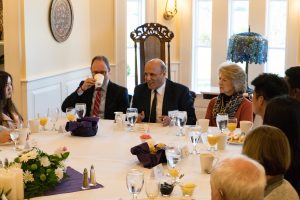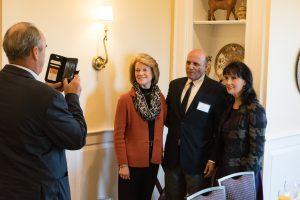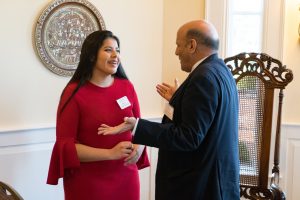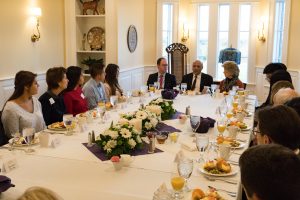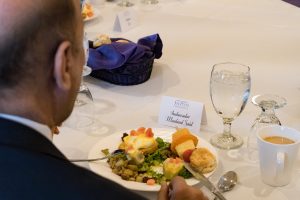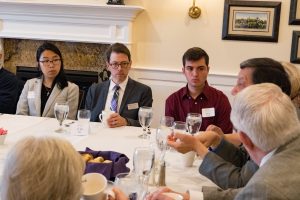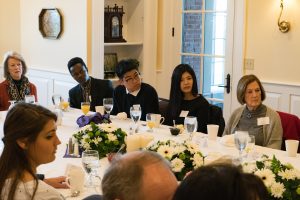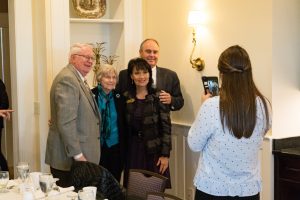Asbury’s Joe Pitts Center Hosts Visiting Ambassadors
October 26, 2018
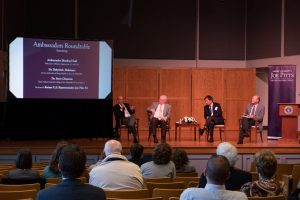 Asbury University is committed to preparing its students to start here and impact the world. With a student body representing more than 40 countries, Asbury forms a unique and beautiful tapestry of language and culture right here in the rolling hills of Kentucky.
Asbury University is committed to preparing its students to start here and impact the world. With a student body representing more than 40 countries, Asbury forms a unique and beautiful tapestry of language and culture right here in the rolling hills of Kentucky.
This week, the Joe Pitts Center for Public Policy hosted an Ambassador Roundtable and Comparative Politics Lecture for the student body and local community. Former ambassador of the Kyrgyz Republic Dr. Baktybek Abdrisaev and the ambassador of Western Sahara to the U.S. and United Nations Mouloud Said visited campus as part of the event.
“We often talk about how Asbury sends people to the far corners of the earth,” said Dr. Steve Clements, dean of Asbury’s College of Arts & Sciences, during the roundtable discussion. “This afternoon, we have some folks with us who have deep roots in rather distant parts of the world, and they’ve come to share with us about their homelands.”
The Ambassadors Roundtable was hosted by Clements and former U.S. Representative Joe Pitts ’61, for whom the Center is named. Guests offered perspectives on education, interfaith efforts, maintaining diplomatic relationships during and after regime changes and much more. Students and members participated as well, asking questions on topics of policy, faith and international relations. After the Roundtable, Political Science students and guests heard from Abdrisaev, a professor at Utah Valley University, during a Comparative Politics lecture.
During their time on campus, Abdrisaev and Said both spoke at length about the intersection of faith, politics and advocacy.
“I came to this campus and saw that Asbury was a Christian university and it’s a really important mission,” Abdrisaev said while speaking about the importance of faith in the political world.
Said spoke in depth about the refugee camps in Western Sahara, highlighting some of the programming for students that was created in part through relationships with churches and host families from the U.S. and several European countries.
Said, Pitts and Abdrisaev all emphasized that the relational aspect of politics can drive real change. Asbury political science students learn much of this in their classes and also got to witness it firsthand during Tuesday’s Roundtable, seeing the friendships Pitts has formed with both men over the course of his political career.
“When you develop friendships, then you can really work together,” Pitts said. “They open doors. [It] is very important to make relationships with people and host. Those things result in a lot of good.”
During the Comparative Politics lecture, Abdrisaev discussed the importance of student advocacy and shared a story about a group of his students who were able to present in front of the U.N.
Clements and Pitts are excited about the opportunities and partnerships that are continuing to develop since the Center’s opening last spring.
“It feels like we’ve got some new friendships now that can carry on into the future,” Clements said.
Previously this semester, the Center hosted several judges from the Kentucky Court of Appeals, who met on campus for oral arguments. Following this, a debate was hosted in the Student Center between candidates running for the Kentucky senate seat. And just last week, Lt. Gov. Jenean Hampton spoke to students during a fireside chat.
The Joe Pitts Center for Public Policy opened in March 2018. Housed in Kinlaw Library, the Center includes a replica of Pitts’ office in Washington, D.C., and its initiatives include regularly hosting events, an annual symposium and a leadership intensive in Washington, D.C. as well as providing scholarships for political science majors.
Learn more about Asbury’s Joe Pitts Center for Public Policy.
